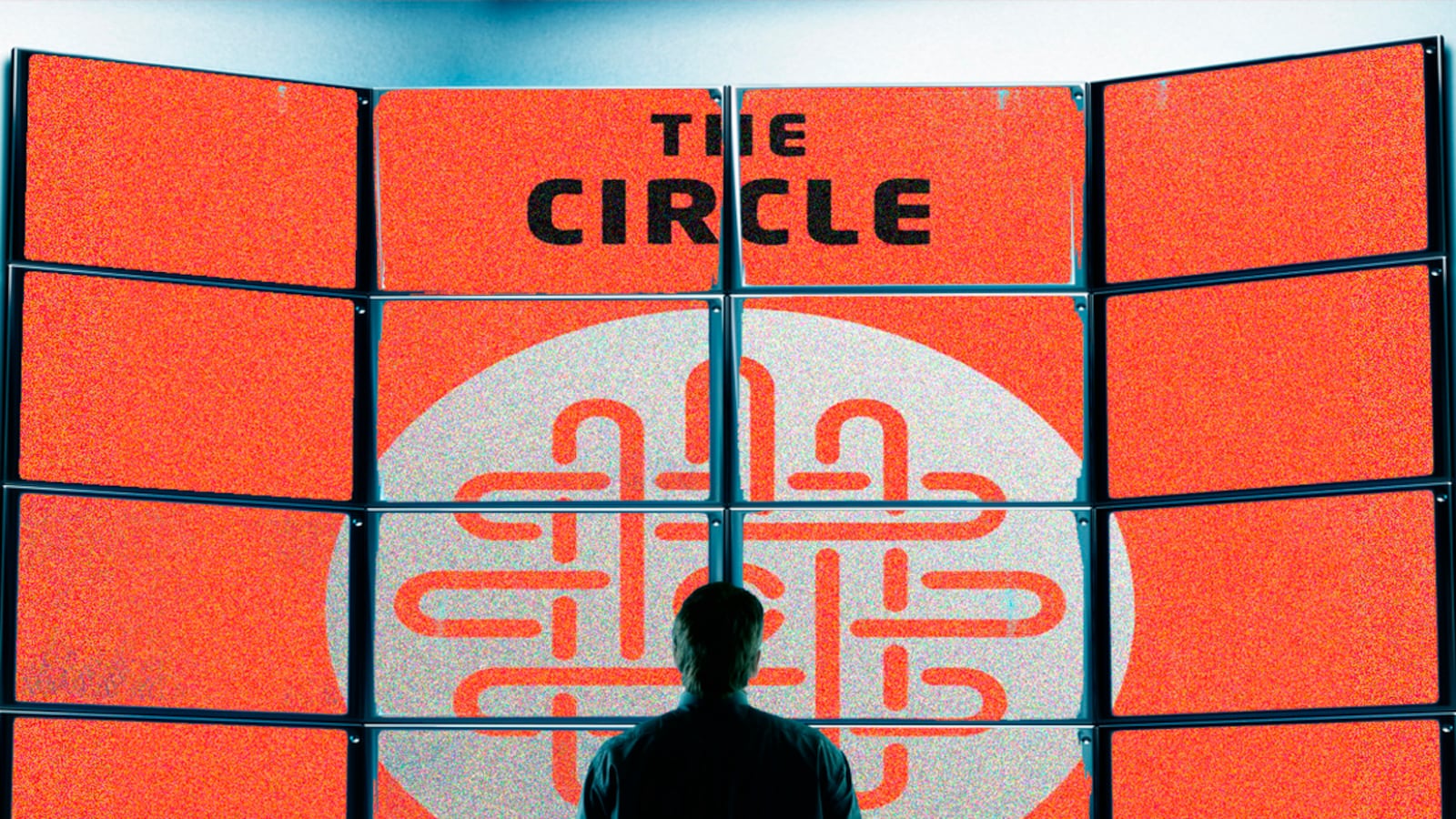In 1945, Jorge Luis Borges published a short story about Google. The narrator of “The Aleph” is a writer, also called Borges, who each year visits the family of a dead woman with whom he’d been in love. He comes to know the woman’s cousin, Carlos Argentino Daneri, a terrible poet with a very high opinion of himself and bombastic opinions about everything else. Of Modern Man, Daneri bloviates: “I view him ... in his inner sanctum ... with telephones, telegraphs, phonographs, wireless sets, motion-picture screens, slide projectors, glossaries, timetables, handbooks, bulletins.” Borges adds: “He remarked that for a man so equipped, actual travel was superfluous.”

Daneri has access to an Aleph, “one of the points in space that contains all other points,” and it is “in the cellar under the dining room.” It permits him to see everything, everywhere, “from every angle, each standing clear, without any confusion or blending.” He reveals this awesome power to Borges to recruit his help in preventing the house from being torn down by an expanding local business. Why? Daneri is using the Aleph to write a terrible poem that minutely and pointlessly describes everything on earth. Borges exacts revenge on the buffoonish Daneri, but the reader is left to wonder: What if this power to see and record everything really fell into the wrong hands? And then to sigh: Oh, right.
Dave Eggers takes up a thread from “The Aleph” in his new novel, The Circle, an explicit rebuke to Silicon Valley titans like Google, Facebook, and Twitter for their steady erosion of privacy and even interiority. The Circle may be one-dimensional, formulaic, more fable than novel, but it has all that in common with Brave New World, Animal Farm, Nineteen Eighty-Four, and Fahrenheit 451. One hopes that it will enjoy pride of place with those books in classrooms, as a reminder that surveillance and transparency were not always judged merely by what they might do for us.
Mae Holland, who is both The Circle’s heroine and its villain, is a disgruntled utility company grunt recruited to the Circle by her type-A “bestie,” Annie. She will be instantly recognizable to readers of a certain age, Millennials, as the girl who not only wants a plum job but also believes it is her birthright. “Did anyone really work at a utility company anymore?” she wonders. Since such companies are indispensible—Internet startups, for instance, still run on electricity and not moonbeams and caviar—the implication is that basic services should be provided by Morlocks toiling in cavernous sub-basements, while Eloi have all the real fun on gleaming “campuses” of glass and chrome.
Speaking of fun, Eggers has plenty of it dumping on the internal culture of the Northern California tech corridor. During Mae’s Circle orientation, she sees the writing on the wall-mounted displays: “[A] screening of Koyaanisqatsi at noon, a self-massage demonstration at one ... A congressman ... was holding a town hall at six thirty ... his shirtsleeves rolled up and his hands shaped into earnest fists.” The Circle’s mission, masquerading as disinterested pursuit of knowledge, will turn out to be fueled by love of power. We know what power does and we know what absolute power does. But does Mae?
A tempting complaint about The Circle is that Mae is too much of a naif, too trusting of the info-hungry juggernaut even though, unlike the rest of us, she knows the true scope of its appetite. There is a scene in which a new project, SeeChange, is unveiled to a crowd of Circlers. Cameras will be placed everywhere, ones “the shape and size of a lollipop,” Eggers writes, underscoring the program’s infantilizing nature. From the preening, prancing executive’s irony-free exclamation, “Think of the implications!” to the motto ALL THAT HAPPENS MUST BE KNOWN, do we believe anyone alive would fail to recoil from this display? Eggers’s great insight is to know that because it has never been put to us so bluntly, we have already failed to recoil from it.
Mae represents our collective spirit, pre-broken and slumping at attention. She consents to having her non-worklife made public. She is made to say sorry for leaving at five, for failing to attend co-workers’ parties or to document (and thus commodify) her kayaking hobby. A colleague surreptitiously records what should be a sexual embarrassment involving Mae; when she petitions to have the video erased, she is told that the elimination of shame is part of the Circle’s mission. Thus does Eggers destroy the blinkered logic of our tech saviors—a juvenile belief that shame or fear are the only reasons one might desire privacy. That private moments might be sacred, not humiliating, never occurs to those who believe, as the Circle does, that privacy is theft.
The innocent have nothing to hide, after all, has always been an infuriating non sequitur to those who grasp that innocence vouchsafes us the privilege of hiding whatever we wish to keep secret.
The voices of reason in The Circle are Mae’s parents and ex-boyfriend. The former are coaxed to the dark side by the prospect of being added to Mae’s generous insurance policy—Mae’s father is terminally ill—but the latter, an incorruptible saint who cannot even consent to an online presence for his antler-chandelier business, stands for the fanatical Luddite in us all. He is made to deliver heavy-handed sermonettes, and he is made to lose, since this is not a delicate book, in the biggest way possible.
Mae’s own journey—surely this is no spoiler—from credulous pawn to potential freedom fighter back to brainless cheerleader recalls Winston’s psychological demolition in Nineteen Eighty-Four.
In truth, Mae is a far less interesting or instructive character than her betrayed mentor, Annie, who stands in for a type we might call a Solutionist. The Solutionist believes that if it can be solved, it must be. It is the Solutionist who believes, along with the executive in The Circle, that if it is easier to consult a webcam than to drive to a beach and see if the waves are right for surfing, we must sow the sands with hidden cameras. The Solutionist would strip our lives of all difficulty and uncertainty, replace them with convenience and control, and then expect us to construct an obelisk in her honor. This is known as the déformation professionnelle: If you’re a problem-solver, everything looks like a worthy project. The rest of us, the humans among us, are happy to let life remain outside the ambit of the Aleph, unseen, unfixed, ready to surprise or wash us away at any time.






